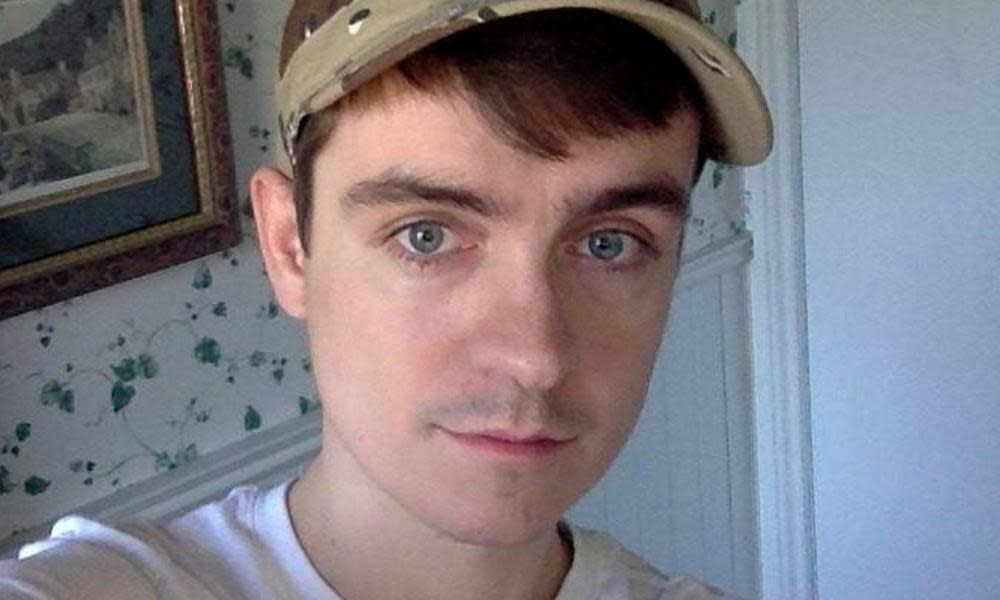Quebec City mosque shooter 'not a monster' say parents

The parents of the 28-year-old man who opened fire on worshippers in a Quebec City mosque, killing six men and injuring more than a dozen others, have blamed years of bullying and intimidation for their son’s actions, saying he is not a “monster.”
After pleading guilty to six counts of first degree murder in March, Alexandre Bissonnette is facing life in prison without the possibility of parole for up to 150 years.
As sentencing arguments wrapped up on Thursday, Raymond Bissonnette and Manon Marchand spoke publicly for the first time since the shooting, expressing their sympathy to the victims and lashing out at the crown prosecutor for minimising the relentless bullying Bissonnette suffered in school.
“Alexandre is not a monster,” Raymond Bissonnette told reporters as his wife fought back tears beside him. “The crown said that all young people are bullied at some time in their lives and don’t commit serious crimes. I think that this opinion does not do justice to the serious damage and suffering caused by bullying and intimidation.”
They had worked for years to address the bullying but failed, leaving Bissonnette battling mental health issues. “Unfortunately, Alexandre’s mental condition caused by the years of intimidation was not identified by us nor by the doctors he consulted,” he said.
He noted that the crown did not order a psychiatric examination after Alexandre’s arrest. Instead it sought to “demonise” their son by seeking six back-to-back life sentences, amounting to a 150-year sentence that could rank as the longest in Canadian history.
“One hundred years is actually a death sentence in disguise; we all know that,” said Raymond Bissonnette. “I fear that in my son’s case, the crown is seeking a political, not a judicial sentence.”
Nearly 50 people were at the mosque in 2017 when the three-minute shooting rampage began. Video of the attack played in court showed Bissonnette pausing numerous times to reload his semi-automatic Glock handgun as worshippers scrambled to protect the handful of children in the mosque at the time.
Bissonnette’s parents have attended much of the sentencing hearing, listening quietly as the victims’ families detailed how the killings shattered their lives and left many in the city’s tight-knit Muslim community fearing for their safety. “I would like to express to them, once again, in my name and my family’s name, all our compassion, our sympathy with them in this terrible, terrible, terrible ordeal,” Raymond Bissonnette said.
Earlier this year, prosecutors sought to paint Alexandre as an unrepentant killer who saw violence as a means of avenging the relentless bullying he had suffered in school.
The court heard that Bissonnette had trawled the internet, obsessively following the social media feeds of Donald Trump and right-wing commentators in the US and scouring for content to feed his resentment of immigrants, Islam and feminists as well as his fascination with mass shooters.
When asked if he had anything to say, a tearful Alexandre said he was ashamed of his actions. “I regret that my life has caused so much suffering and pain for so many people,” he told the judge.
In February, Bissonnette’s parents issued a written statement, hinting at their anguish in the wake of the attack. “The immense pain and suffering caused to the innocent victims and their families by this inexcusable act remains for us, to this day, totally inexplicable,” they said. “Alexandre remains our son whom we love and who will always remain a part of our family. Like all parents, we had hoped to see him succeed and be happy in life. In a sense, we, too, have lost a son.”
The judge is not expected to hand down a sentence until October.

 Yahoo News
Yahoo News 
